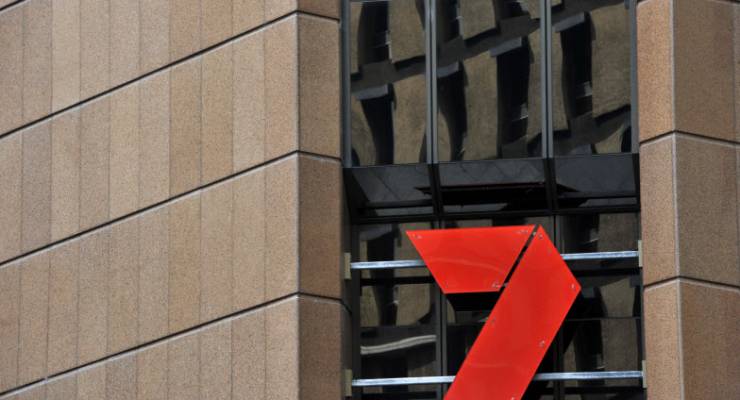
One of the favourite words in News Corp coverage of the long, winding attempt by the federal government to change media ownership laws was “archaic”. As is the way, once News Corp has settled on a word, it turned up in just about all their papers, in a lot of their reporting and coverage.
Now, the laws haven’t even finished their passage through the Parliament and the ABC’s managing director Michelle Guthrie has, without using it herself, already turned the word back on News Corp, Fairfax Media and the other commercial players who were so eager for the laws to change.
In her speech to the ABC Friends public conference dinner last Friday, Guthrie blew the whistle on the commercial strategy of the media companies that underpinned their active lobbying for the changes the Senate has now given them.
She called out their zero-sum thinking about media: that any gain by one content-maker must be another’s loss. However true that might have been before Netscape launched its browser in 1995, it ain’t true now.
In short, the idea behind the media ownership changes is to allow the existing companies to consolidate through mergers and acquisitions to create a large national champion that can compete with the large tech giants.
This has already happened in Australia and New Zealand on a small scale in the last year with New Corp absorbing APN’s regional papers in Queensland and northern New South Wales to create a Cairns-to-Coffs Harbour monopoly; in Perth, where News Corp sold The Sunday Times into Seven West Media; and in New Zealand where Fairfax and APN are fighting the competition regulator to create a single publishing company.
[Why FM radio will be the real prize of media takeover frenzy]
The existing media players like this because they think they can’t lose; either they own the national champion or they get to cash out at a higher price than when the laws restricted consolidation.
The eagerness to cash out was shown in the early approach late last month by Prime Media — the Seven Network’s regional affiliate — to sell itself to its parent, Seven West Media. We don’t know why this didn’t work. Seven West Media simply said: “… there was a conceptual proposal received from Prime but that this did not result in any agreement.” Prime said that while it “saw merit in the possible combination, the parties were not able to agree on the terms of the transaction”.
If you want evidence that the market reckons sellers get a better deal than buyers under these laws, then you’ll note that Prime shares fell on the news and Seven West shares rose.
Oddly, a week later, Seven sold those shares it already held in Prime to Bruce Gordon, the owner of competing regional broadcaster WIN, who had been blocked from his Ten network takeover by CBS. This took Gordon’s holding in WIN’s competitor to the statutory maximum of 15%.
Meanwhile, Fairfax has been promiscuously linked with both Seven West and Nine. And both Fairfax and News Corp are pursuing corporate restructures that involve spinning out the profit-making components of the business into separately listed entities: Domain in the case of Fairfax and Fox Sport/Foxtel in the case of News.
[Media reforms won’t reform the media, will make rich players richer]
This all just tells us that we’ll have to wait until the merry-go-round stops before we know where all the pieces fall.
The idea that building large national champions should trump competition regulation has a long history in Australia. Back in 1977, then-Liberal rising star and minister for business and consumer affairs John Howard legislated to weaken the merger provisions in the Whitlam government’s Trade Practices Act so that Australian companies could grow large enough domestically to compete globally. It was this weakened provision that led to the regulator waving through media consolidation in the 1980s. To be fair, those media companies that emerged from the process — Murdoch and Packer — did become genuine global players, although it’s not clear what domestic benefit Australia drew from that.
But, as Guthrie pointed out last week, however much Australian (and even New Zealand) commercial media consolidates, it will be a minnow compared to the large-platform whales. She noted that the combined value of the three free-to-air networks was just $2.1 billion. Fairfax Media was about the same with a market valuation of $2.2 billion. We don’t know, but can guess than News Corp’s Australian operations are probably worth about the same.
Facebook? About $650 billion. Alphabet? About $850 billion. Even little old Netflix that’s causing the NBN so much grief? $90 billion.
This tells us that the media — and the large platforms — need more regulation not less. And we need investment in media content, including journalism, not corporate and financial engineering through mergers, acquisitions and consolidation.








Crikey is committed to hosting lively discussions. Help us keep the conversation useful, interesting and welcoming. We aim to publish comments quickly in the interest of promoting robust conversation, but we’re a small team and we deploy filters to protect against legal risk. Occasionally your comment may be held up while we review, but we’re working as fast as we can to keep the conversation rolling.
The Crikey comment section is members-only content. Please subscribe to leave a comment.
The Crikey comment section is members-only content. Please login to leave a comment.